Tommy Hunt: The Last Flamingo: 13th Floor Interview
Tommy Hunt was a member of one of the most beloved doo-wop groups of the 1950s, The Flamingos. At age 89, he’s still got the music in him. We found him in London.
The 13th Floor’s Marty Duda spoke to Tommy Hunt about his days in The Flamingos, specifically about making one of the most beautiful records ever pressed to vinyl, their 1959 hit, I Only Have Eyes For You.
After that, Tommy went solo and recorded the first version of a Bacharach/David classic. Tommy’s got some stories to tell, so pull up a chair and have a listen.
Or read a transcription of the interview here:
Tommy Hunt: Hey Marty, I’m still on the stage and I don’t feel 89!
MD: That’s the spirit. That’s exactly how it works.
Tommy Hunt: I feel great, I feel great!
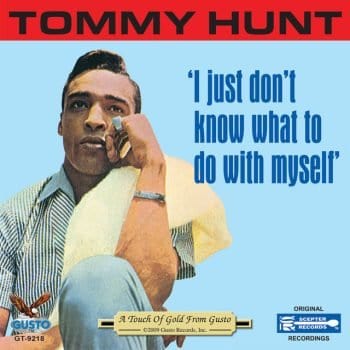 MD: Fantastic. So anyway, I just found out you also sang the original version of I Just Don’t Know What To Do With Myself.
MD: Fantastic. So anyway, I just found out you also sang the original version of I Just Don’t Know What To Do With Myself.
Tommy Hunt: Yeah, for Burt Bacharach and Hal David.
MD: That’s amazing. That’s also one of my favorite songs.
Tommy Hunt: Can I tell you something, Marty, can I tell you something?
MD: Yep.
Tommy Hunt: I didn’t like it at all.
MD: Why not?
Tommy Hunt: I never told nobody that because I thought you know, after being with The Flamingos for so long, and the music that we sang, it really took me right off the track when they offered me the song. I thought, at the time, that it was meant for a girl’s voice because it was too mushy.
MD: Gotcha. Well, later on Dusty Springfield did it didn’t she? Or Dionne Warwick…one of those folks.
Tommy Hunt: Did Dionne do it?
MD: I think so.
Tommy Hunt: Yeah, somebody told me she did it, I didn’t know it though.
MD: You had like Leiber and Stoller producing it right? And it was written by Bacharach and David.
Tommy Hunt: They wrote it, and they told me about it. And when I first heard it, I told Burt, I said, Burt, this song is not for me. It’s for a girl. And he said, ‘Tommy, you can do it’. I said, ‘Burt’, I said, ‘it’s not my thing. It’s not me’. And he kept saying it until he told me to shut up and do the song. So I just shut up and did it. I said, I’m not gonna argue with the experts.
MD: Yeah, no, Fair enough. Fair enough. So by that time, you were out of The Flamingos. So tell me, I’m imagining I Only Have Eyes For You, the song was recorded in Chicago, right?
Tommy Hunt: I Only Have Eyes was not recorded in Chicago. It was it was recorded in New York. Yep. I can remember the record…I don’t remember the name of the recording studio. I can see it in my head, but I can’t see the name.
MD: So who was there besides you?
Tommy Hunt: You mean in the group?
MD: In the group, the engineers, the producers…take me there. So who was singing the lead?
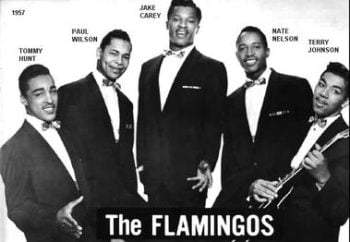 Tommy Hunt: The lead was Nate Nelson. There was five of us…six of us, really, there was Nate Nelson, Ezekiel Carey, Jacob Carey, Terry Johnson, and Paul Wilson and myself.
Tommy Hunt: The lead was Nate Nelson. There was five of us…six of us, really, there was Nate Nelson, Ezekiel Carey, Jacob Carey, Terry Johnson, and Paul Wilson and myself.
MD: And how did you guys come to find the song? How did you discover it?
Tommy Hunt: The owner of the record company, Scepter/Wand, when we went into see him about a new contract, he mentioned to us he said, You guys are a little bit off the track. You know, the some of the songs you sing, you’re not into the up to date music. Why don’t you do an evergreen album? And so I said, What is an evergreen? Because I never heard the term before. I said, what do you mean by Evergreen? And they say, you know, some Nat King Cole or any of those singers like Sinatra and stuff like that.
MD: Bing Crosby
Tommy Hunt: Some old thing like that. So we said, well, we don’t do that kind of stuff. But he said, ‘I think it would be a great idea for you to recreate a new path with this kind of music’. So we went back to the hotel and sit down and talked about it and then we went back to the office the following day, and we said, ‘Okay, do you have any songs in mind that you would like us to do?’ And he said, ‘I got a couple, a few. And then you can pick out the rest of them yourself.’ And he gave us I Only Have Eyes For You. And I said, ‘Well, I know that song, because Nat King Cole sang it. And Frank Sinatra sang it, all the biggies sang it. I said, it wasn’t a song that people hadn’t heard before. And so I said, ‘Well, how’s that gonna help us when people have heard the song so many times? They’re not gonna make it a hit, plus is not the music of today.’ He said, ‘Tommy, you’d be surprised’. He said, ‘Do the song. I guarantee you, you’ll get the attention from the public’. So we sit down and talked about a little bit more than when we started rehearsing the song. This is how we come to do it. We started rehearsing and playing around with it. And I was sitting on the bed while we were rehearsing. And I thought of the idea, doo-wop shoo-bop. I kept saying to myself, doo-wop shoo-bop, doo-wop shoo-bop, and the fellas said, what are you saying? I said, ‘I’m just saying doo-wop shoo-bop, its was just an idea’. They said, ‘Well hold that idea in your mind. And we’re going to try something’. So we started off with the doo-wop shoo-bop. And that led us into the format of the song of how we were going to do it. And funnily enough, when we put it out, it just hit the charts and went straight up. None of us thought it was gonna do anything.
MD: I mean, it has such a distinctive sound to it. It’s very of its kind. Do you know anything about how they recorded it and how they got it to sound the way your voices did? I mean, it’s almost heavenly.
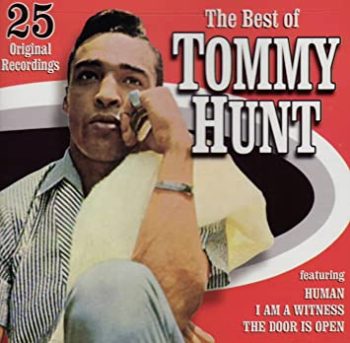 Tommy Hunt: We did our own music ourselves, we rehearsed harmonies and stuff, new harmonies and stuff ourselves. But that doo-wop shoo-bop that I thought of, you know, that turned this song around. It turned the whole thing around. I thought it was a stupid saying. I was just saying it just to have fun. But when we put it on the record, and we sit down one night and really listened to it, we said hey, that is that’s quite an idea. And you know, today it’s right now doing a lot of advertising. A lot of advertising so I’m really proud of this song myself.
Tommy Hunt: We did our own music ourselves, we rehearsed harmonies and stuff, new harmonies and stuff ourselves. But that doo-wop shoo-bop that I thought of, you know, that turned this song around. It turned the whole thing around. I thought it was a stupid saying. I was just saying it just to have fun. But when we put it on the record, and we sit down one night and really listened to it, we said hey, that is that’s quite an idea. And you know, today it’s right now doing a lot of advertising. A lot of advertising so I’m really proud of this song myself.
MD: You should be, it’s a it’s a beautiful record.
Tommy Hunt: Its too bad that the other guys have not had…they are all gone, you know, except me and Terry Johnson, the guitar player. So it’s the only two left.
MD: Yep, yep. Yep.
Tommy Hunt: I think he’s trying to recreate The Flamingos but for some reason he’s not doing Flamingos songs. He’s doing everybody else’s songs and people want to see The Flamingos music. They would love to see the old group with new faces, but the same sound as the old group.
MD: Yep, yep. So how would you describe that sound?
Tommy Hunt: I’ve been working with a Spanish group in Spain. I didn’t believe it, Marty, I went over to Spain to do some shows. And Jim Boy approached me, a Spanish boy. And he said, ‘I know you are’. I said, ‘you don’t know me. You never seen me before in your life’. He said, ‘you’re Tommy Hunt of The Flamingos.’ I say ‘why did you know that?’ He said ‘because I’m in a singing group here, I got a singing group’. And I said, ‘what do you call yourself?’ He said The Velvet Candles. He said that we sing all of The Flamingos’ stuff because we love The Flamingos. And he asked me to do a show with him. And I met all the fellows and they said, All you have to do is one song. Now I hadn’t done The Flamingos song in years. And I said well, I just hope I remember it and don’t mess it up. I said yes, I’ll do it with you, it would be an honor to do it with you. The night of the show the big show, one of the boys come in the dressing room and said we got a problem. The lead singer his voice is a little bit bad. Tommy, can you do 14 of the songs, Flamingos songs? I said what? I said I can’t remember the first one I did. And you know what the strangest thing happened Marty, when I got on the stage, the music itself and the band played the music so perfect, like The Flamingos music, the boys sound and so much like us. All the words to each song came back to me.
MD: It’s amazing.
Tommy Hunt: I remembered every song, 14 songs.
MD: That’s amazing. That’s amazing. That’s fantastic.
Tommy Hunt: So that made me feel really good to know that I could remember the songs. So I’m getting ready now to go to Italy and Switzerland to do another show with the boys. So I’m trying to keep The Flamingos name in the air. You know, I’m trying to keep the music The Flamingo music going.
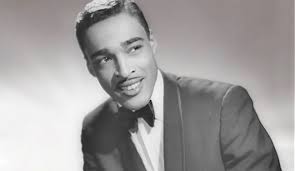 MD: Well, why not? Yeah, that’s great. So you left The Flamingos what, in like, 1960, 61 somewhere in there, originally?
MD: Well, why not? Yeah, that’s great. So you left The Flamingos what, in like, 1960, 61 somewhere in there, originally?
Tommy Hunt: Yeah, I left The Flamingos in 60. I had to leave because of personal problems. Not with the group. But with some of the ideas. Because you know that The Flamingos were black Jewish boys.
MD: Yeah, yep. Yeah,
Tommy Hunt: Well, I wasn’t Jewish, I was Gentile. And the lead singer was Gentile. And they was always trying to get me and Nate to join the Jewish faith. And we didn’t understand because we were Baptist. And we didn’t want to change our religion, to go to the Jewish religion. So we had a little bit ups and downs, sometimes. Not to the point of hurting each other. But it just got to a point where it was too much pressure on the mind. So I just thought I’d just leave and you know, I told the boys I was leaving, and I was gonna try to do something on my own.
MD: And you had some success. You had some success with Scepter Records. How did that happen?
Tommy Hunt: I’ll tell you about that story. I was sitting in a bar in New York, the Brass Rail, never will forget it. And a fella walked up and tapped me on my shoulder, I turned around and he said, you’re Tommy Hunt. I said, Yes. He said you were with The Flamingos. I said that’s right. He said, Listen, I heard you’d left the group, I said I did. He said, Well, what are you going to do now? I said, Well, really, actually, I don’t know. I said, I don’t know which way I’m goin’. I said, I know I’m not going to leave New York. I’m not going back to Chicago. I’m going to stay here for a while. Maybe something will happen with my solo career. So he said, Well, I got a record company. I said, Oh, I said, What’s the name of your record company? He said Scepter/Wand. I said, Do you have any stars on it? Are you just beginning, are you just starting? He said no, no. He said, I’ve got a couple of hits on the charts. So I said, who do you got hits with? And he named Chuck Jackson and The Shirelles. I said, hey, hey, I said yes, I’m definitely interested. And so, so actually, I would say a month, a month after I left The Flamingos, at least a month and a half, I had a hit record on the charts. So I’d only been away from the group a month and a half before I had a hit. So that was really lucky for me.
MD: Well, we talked about I Just Don’t Know What To Do With Myself. And then apparently you were a regular at the Apollo. Is that right?
Tommy Hunt: That’s right, with the song call Human.
MD: Yeah, yeah, I’ve got the record. So tell me how that came to be.
Tommy Hunt: Give me an opinion of it?
MD: I love it. That’s why I got it. And that’s why I’m talking to you. So that’s easy, but how did you find the song?
Tommy Hunt: Well, I’ll tell you what happened with that story. When Luther brought me the song that very first solo song I was gonna do…he brought me a song called Parade Of 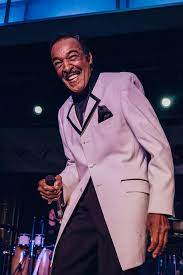 Broken Hearts. I listened to it in the office. And I turned to Luther and I said, Luther, you gotta be joking. Are you making a joke out of giving me this crap song? Whattya mean, crap, this is a hit song! I said yeah, maybe for somebody but not for me. I said I’m not in that bag. Sound like a funeral march! I told him that, I said, we come up with as a demo and even though we don’t even get a blink of the eye for the charts. So he said, Tommy, believe me I know how to make hits, I got The Shirelles, I got Chuck Jackson, I got Dionne Warwick coming in. And I said, yeah, you are the expert. I said but I’m the expert on my own voice. I was not gonna ask for anything I was just trying to tell him you’re not…if you can’t give me a song at least give me my first song that I can appreciate and not go into the studio you know in a bad mood because the song ain’t the right kind of song for me. So then he said to me, I got another song here I don’t think it’s as good as this first song that gave you I said well let me hear it, let me be the judge of that I said, because I am the singer. So he said okay, I’m gonna let you hear it. So he played Human. You know what I said, as soon as it was over? I said, Luther, believe it or not, that’s the song. That’s me. That’s how I want to sing and he said, oh Tommy, come on that’s only a throwaway song. I said, maybe to you its a throwaway song I said but let the people in the public be the judge. I said that’s who makes a hit record, not the producers. You make the record but you don’t know if its going to be a hit or not. Just cause you got The Shirelles you had some luck with The Shirelles, you had some luck with Chuck Jackson you’re gonna have luck with Dionne Warwick, I hope.
Broken Hearts. I listened to it in the office. And I turned to Luther and I said, Luther, you gotta be joking. Are you making a joke out of giving me this crap song? Whattya mean, crap, this is a hit song! I said yeah, maybe for somebody but not for me. I said I’m not in that bag. Sound like a funeral march! I told him that, I said, we come up with as a demo and even though we don’t even get a blink of the eye for the charts. So he said, Tommy, believe me I know how to make hits, I got The Shirelles, I got Chuck Jackson, I got Dionne Warwick coming in. And I said, yeah, you are the expert. I said but I’m the expert on my own voice. I was not gonna ask for anything I was just trying to tell him you’re not…if you can’t give me a song at least give me my first song that I can appreciate and not go into the studio you know in a bad mood because the song ain’t the right kind of song for me. So then he said to me, I got another song here I don’t think it’s as good as this first song that gave you I said well let me hear it, let me be the judge of that I said, because I am the singer. So he said okay, I’m gonna let you hear it. So he played Human. You know what I said, as soon as it was over? I said, Luther, believe it or not, that’s the song. That’s me. That’s how I want to sing and he said, oh Tommy, come on that’s only a throwaway song. I said, maybe to you its a throwaway song I said but let the people in the public be the judge. I said that’s who makes a hit record, not the producers. You make the record but you don’t know if its going to be a hit or not. Just cause you got The Shirelles you had some luck with The Shirelles, you had some luck with Chuck Jackson you’re gonna have luck with Dionne Warwick, I hope.
MD: And you’re still singing.
Tommy Hunt: Singing as much as I can. I’m still on the pay list of songsters. I’m still on the pay list. I always tell people I see that might be old, but I ain’t cold.